---------------------------------------------------------
*edited to add – this article was written in 2016 just before we got our first ducks. As we learned more about our duck friends, I’ve added some links to this article to help beginners learn more. You might also want to check out our full Duck Care library of articles here
I am SO excited! We are only T minus 3 days until ducklings arrive! Like every other homesteading addition we have made, this one came on suddenly. About 4 weeks ago we were at the feed store picking up some chicken food when we saw a sign advertising the baby chick breeds that would be available in the coming weeks. Having no need for baby chicks this season I knew I should have steered far away from that list but I was of course drawn to it like a chicken to a bag of worms. My kids were with me so it was all the more dangerous!
The kids noticed right away that the first weekend in April was special because it was not baby chickens but baby ducks that would be coming in. I’m pretty sure just the week before I was talking to someone about how messy and time-consuming ducks were and how we would never go there.
The whole way home the kids talked about how awesome ducks are and I could feel my resistance weakening. Later that afternoon while cleaning up the chicken run with my husband he says “I bet we could section off part of the chicken run for a couple of ducks”, then “we have lots of scrap wood by the shed we could probably build a house for free” (which we did, check out how here!)
I knew I was defeated. Next thing I knew we were sketching out plans, buying duck books, and pouring over websites about raising ducks. I asked some of my blogging friends to share their ducky knowledge with me and I think I am as prepared as I can be. I am sure the next few weeks will be a learning adventure! I’ve gathered all kinds of links for an absolute beginner’s toolkit below. I hope it helps you as much as it did me! If you aren’t sure ducks are right for you click here for my article on duck pros & cons!
To read the full collection of my duck-keeping articles click here!
Great general duck-raising articles from myself & my friends:
Ducklings 101 by The Cape Coop Farm
Tips for Raising Healthy Ducks by The Cape Coop Farm
Duck Breeds for your Yard by The Cape Coop Farm
Best Tips for Raising Ducks by Timber Creek Farm
Adding Geese & Ducks to Your Flock by Timber Creek Farm
Backyard Ducks are Calling your Name by Rodale’s Organic Life
Raising Ducks or Chickens? on HGTV Gardens
Duckling Needs
Ducklings need to be kept warm in a brooder with a heat source just like baby chicks. The consensus among most people seems to be that brooding them in a spare bathtub is the way to go.
You can shut the door to keep out other pets, the water and mess are easy to wash down the drain and all the surfaces are scrubable. Unfortunately, we only have one bathroom in our house. Since not bathing for over a month does not sound like fun to me, tub brooding isn’t an option for us. So we are going to be using our Rubbermaid bin chick brooder (click here to see how we made it).
For ducklings, you start out with 90-degree heat on the first day and then try to go down about one degree per day for 2-3 weeks. By the end of three weeks, that would bring you to 69 degrees and if you are brooding your ducks inside, the air temperature in your house is likely just as warm. When the outside temperatures are consistently in at least the 50s and the ducklings are at least 4 weeks old, they can move outside. Click here to read my post on brooding ducklings
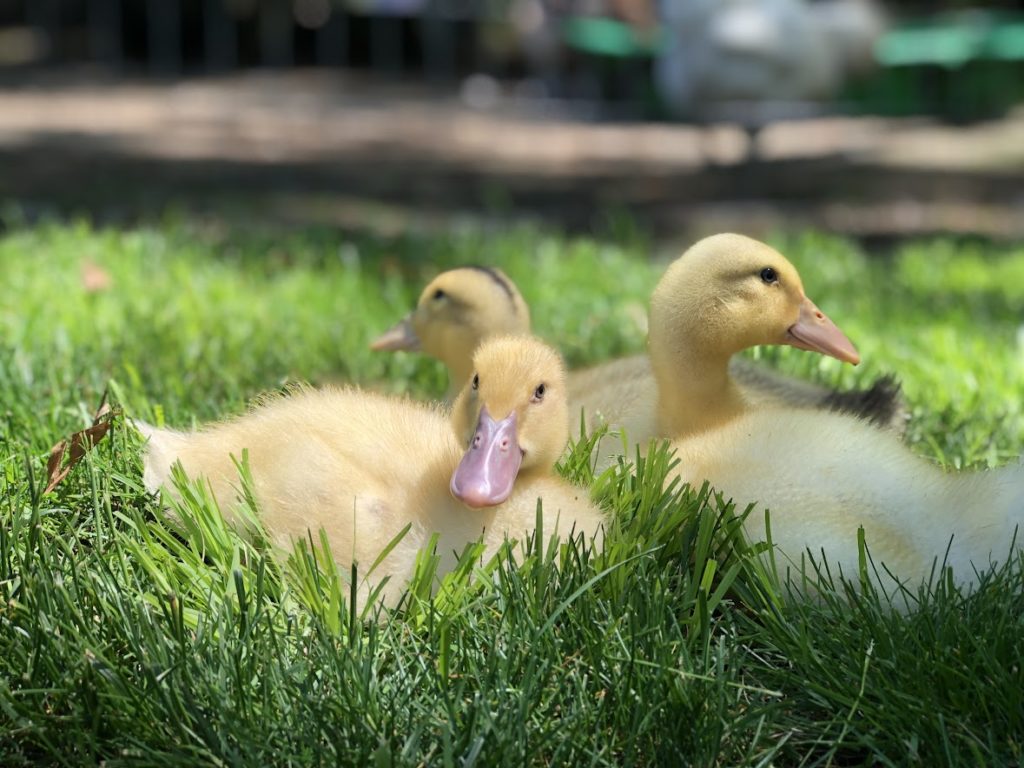
Check out these awesome duckling articles!
Add New Ducks to your Flock by The Cape Coop Farm
Ducklings & Niacin by The Cape Coop Farm
Electrolytes for Poultry from 104 Homestead
Hatching Ducklings with a Broody Duck by The Cape Coop Farm
Started Chicks and Ducklings by Homestead Honey
How to Raise Ducklings by The Frugal Chicken
Basic Duckling Care by Fresh Eggs Daily
How to Start Raising Ducklings & Goslings in Your Backyard by Mother Earth News
Water
Everyone knows ducks love water. What does that mean for a backyard flock? Providing water for swimming is not a must but it will make your ducks super happy, and who doesn’t want super happy ducks?
What IS a must is providing LOTS of fresh drinking water (full-grown ducks can down as much as half a gallon of water A DAY!). A typical Mason jar chick water dish will work for ducklings for about the first week. After that with their big, awkward feet they will knock it over and they will have a hard time dipping their bills into the little holes.
Ducks need constant access to water for drinking, for mixing with their food, and for keeping their nostrils moist. The water bowl should be deep enough that the duck can dip their entire head in the water.
Very young ducklings are awkward on their feet and sometime get “turtled” (stuck on their back). If that happens while in the water it can be deadly. If your duckling bowl is too deep, you can add some small stones on the bottom. When they are a week or so old, you can start providing water deep enough for supervised swimming time. Start out with a shallow pie pan, moving up to something as deep as your kitchen sink or bathtub. Always supervise little ones while swimming as they will tire quickly and could drown. Until their feathers come in, swimming time should be short and you should towel dry the ducklings afterwards to help them warm up. Click here to read my post on duck ponds

Check out these articles on duck pools!
Building a Duck Pond on Backyard Ducks
How I Keep Water for My Ducks Clean by Hoss-It-Is on YouTube
Feed
I have looked both at my local feed store and my local Tractor Supply and couldn’t find any special waterfowl feed. Mixed flock feed is a type of feed appropriate for both chickens and ducks. I wondered what the difference was and if a mixed feed could really provide good nutrition for both birds.
What I have found is that ducklings will do just fine with a standard NON MEDICATED chick feed. Ducklings will eat more than chicks so if they are eating a medicated feed, they could ingest too much medication. You should look for a non medicated chicken starter feed with about 20% protein for the first 2-3 weeks of life. Around 3 weeks duckling growth will kick into high gear. They will eat so much feed, they could get a protein overload which can cause liver & kidney damage so you will want to switch to a lower (16-18%) protein grower feed (NOT layer feed which has added calcium).
The one thing that chick starter feed won’t provide enough of is niacin. To support ducklings fast growth and to help them develop the strong legs they will need for a life of swimming, you will need to provide niacin supplements if you can’t find waterfowl starter feed. You can buy niacin tablets and crush them into their water, but many people simply get Brewer’s yeast and sprinkle that into their feed. click here to read more about ducklings & niacin
Around 18-20 weeks old your ducklings will be full grown and getting ready to lay eggs. At this point, you can switch them to a chicken layer feed (16% protein with added calcium for strong eggshells). Is all this attention to protein amounts really necessary? Growing ducklings don’t need as much protein as chicks and too much protein can cause a condition called Angel Wing, a deformity where their wing feathers sag down and out. click here to read more about Angel Wing. To prevent this, their protein intake needs to be at the proper amounts. Many duck keepers will mix rolled oats (a low protein grain) into their feed to further dilute the amount of protein the ducks are consuming by having them eat less feed if they can’t find lower protein feed. Click here to read my full post about feeding ducks at all stages!
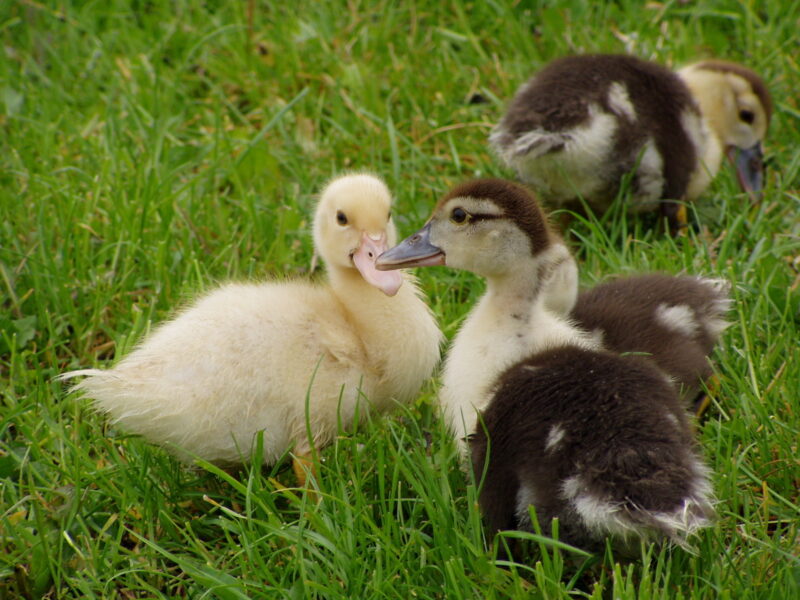
Check out these awesome articles on feeding ducks!
3 Tips for Feeding Ducklings by Timber Creek Farm
When to Switch Your Poultry’s Feed by 104 Homestead
Healthy Treats for Backyard Ducks by Fresh Eggs Daily
Housing
Duck houses & runs have similar space requirements as chickens. 4 square feet of inside space and 10 square feet of outside space is considered adequate. Ducks don’t roost at night so they don’t need roosts, just straw nests on the ground. The house doesn’t need to be fancy, just a secure, dry place to nest will keep them happy.
Your ducks will love you if you can provide water access for them. A natural pond is the easiest option, but most backyard farmers aren’t lucky enough to have one of those! A kiddie pool is great and easy to empty & clean.
Ducks have even fewer predator defenses than chickens. They are slow on land so they can’t run away, and most modern domesticated breeds have been bred so that they are too heavy to fly away. Providing a secure predator-proof run & house is super important. Click here to see the duck house we built and click here to see our later poultry barn set up
Check out these great duck housing articles!
How Safe is Multi Flock Housing? from 104 Homestead
Duck House Plans by Fresh Eggs Daily
Armed with this basic knowledge I am hoping we are ready to welcome our ducklings in a couple days. I am looking forward to starting this new adventure and you can bet I will be sharing our successes and missteps on here soon!
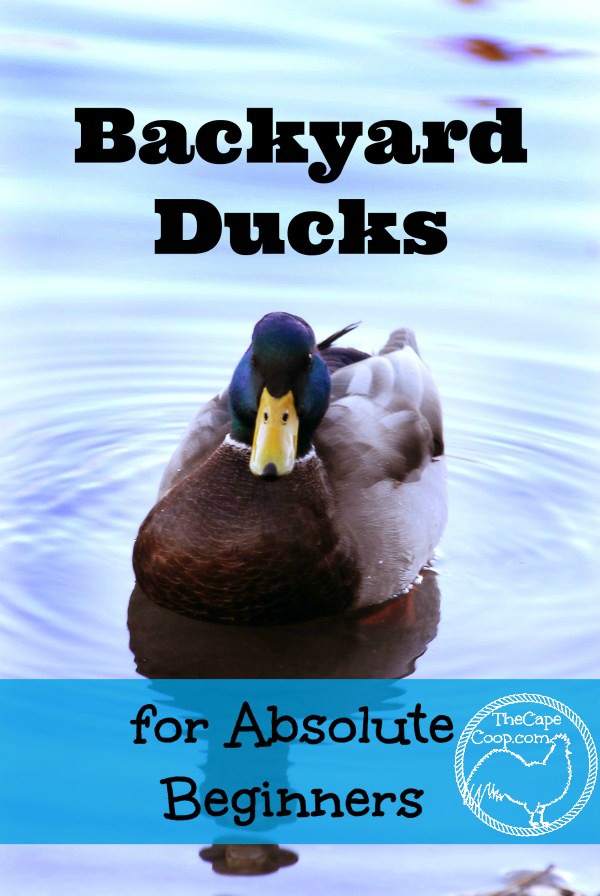
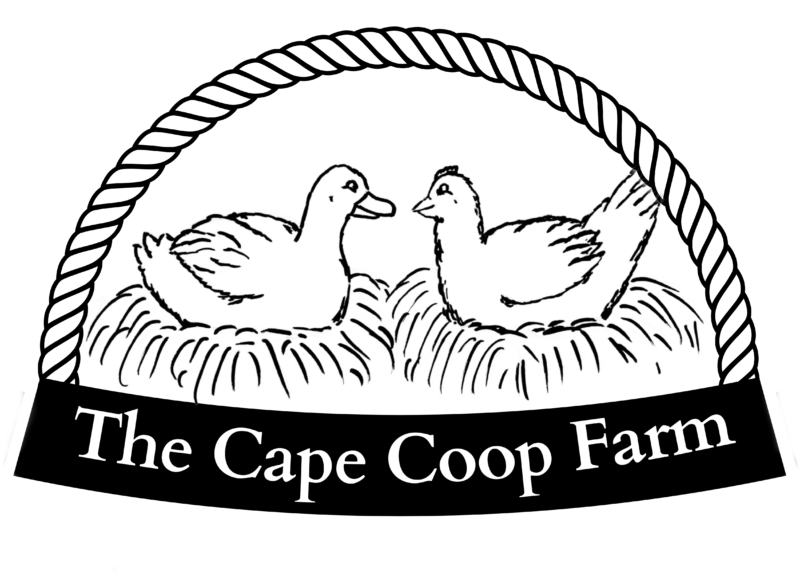
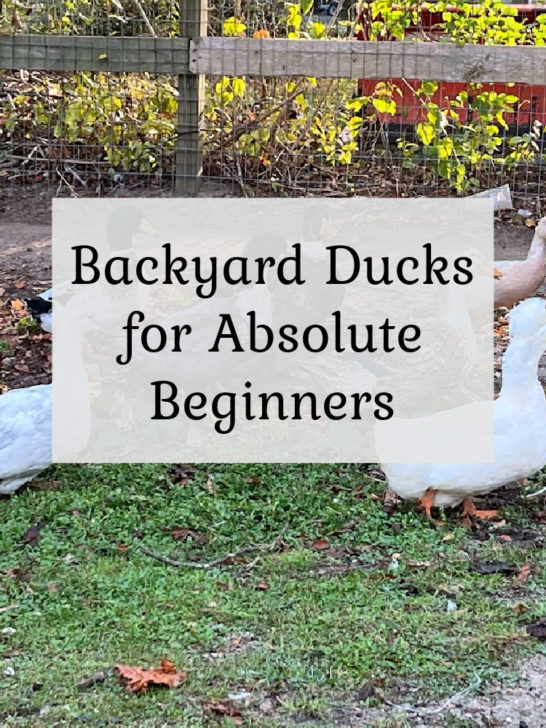

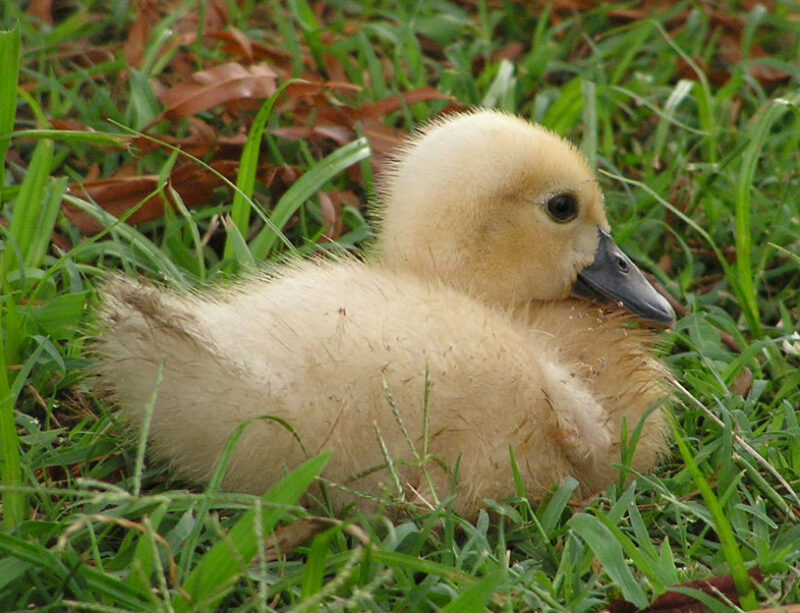
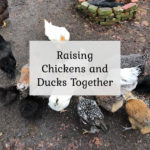

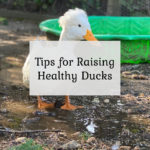
Kayla Gruver
Friday 25th of March 2022
Great. Thanks. I just wasn’t sure were to apply it.
Kayla Gruver
Thursday 24th of March 2022
I was wondering if you have ever used Peck no more on your ducks. I have 2 pekin male ducks and one of them sustained an eye injury and I have noticed that they have been pecking more at each other. I just wasnt sure if I could use the peck no more on the ducks or not. I dont want to place it around or near that eye, but somewhere close if I could. I couldnt find anything that suggested it was ok to use on ducks.
Liz
Thursday 24th of March 2022
Yes you can use peck no more on ducks, but you might need to apply more often than on chickens because it will wash off when the duck swims or dunks her head in the water bowl
Sherry Hendrix
Saturday 22nd of January 2022
Well, it appears after sitting for two weeks that she may have deserted her nest. Has been off of it for most of the afternoon. We had a snow last night and it was in the twenties, so she may have decided she was done with it! In a way, I am relieved!
Liz
Tuesday 25th of January 2022
I've not had great luck with getting mother ducks to stick with their nest the entire time. If she was off it most of the afternoon in those temps I would have to say the eggs are not viable any longer
Sherry Hendrix
Saturday 8th of January 2022
Thank you for your response. Never thought about the shelters encouraging them to nest. Their pen is outside but I have nice rubbermaid boxes stuffed with straw and a doghouse with straw as well. They go out of the pen during the day and come back inside at night. She has water and food close by so hopefully will be fine. It always causes so much drama amongst the family when babies come along I am hoping that she abandons the nest but I don't have much hope for that! I always appreciate your quick response to my ducky situations!
Sherry Hendrix
Thursday 6th of January 2022
I have a little family of mallard ducks here in Virginia. One female hatched out 7 babies on November 30th and 5 are still alive. I would have never dreamed they would hatch. Well now this same crazy female is sitting another nest in this cold January weather and has left her 5 week old babies to be raised by the rest of the clan. Have you ever heard of such a thing? I cannot believe this new nest of eggs will hatch in this chilly weather even though she does have a very cozy next inside her little rubbermaid nesting box!
Liz
Saturday 8th of January 2022
That is one determined momma! It’s not unusual for her to abandon her babies at that age. Most leave their mother between 5-8 weeks. If she had a sheltered spot and is diligent about sitting on the new nest nearly 24/7 they very likely will hatch. The colder the weather the less breaks the mom can take for things like eating or going to the bathroom. And she is likely a little undernourished from just tending to babies. If you can supplement her natural diet with a little poultry feed or cracked corn I’m sure she would appreciate it. I wonder if having the nesting box is encouraging her extreme mom drive. My girls have a warm barn and hay filled nest boxes and a couple times in the past decade or so I’ve had a girl try to sit on a clutch in the middle of winter. But for the most part their instincts tell them this is not a good time for raising babies and all her energy should be spent just getting through the winter herself